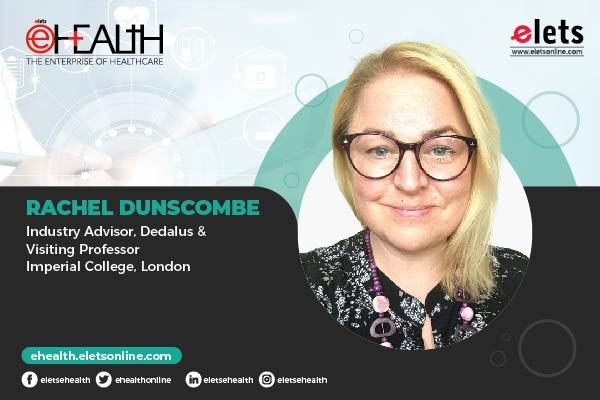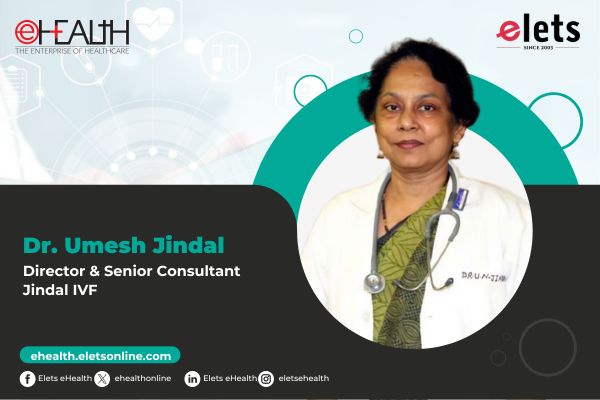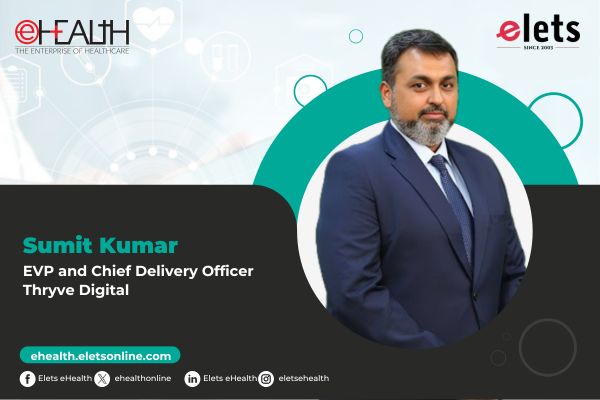
Healthcare organisations around the globe need real-time visibility of how effective their health systems and services are for their patients. CIOs find significant variations in data standards, combined with the lack of data access, resulting in variations in care and outcomes. As we are entering the age of AI and Intelligence, companies like Dedalus are converging on data standards to enable the safe deployment of intelligence and AI in real-time.
Dedalus product portfolio ranges across a wide spectrum of healthcare eco-system focused on care continuity, offering open standards-based platform solutions to help healthcare organisations deliver innovative models of care. “Digital Connect for Health – DC4H” is the next-generation interoperability platform that enables healthcare organisations to access, cleanse, integrate, ingest, and semantically ‘tag’ their own data held across multiple clinical and operational systems, delivering contextual and actionable insights for informed and timely decision making. DC4H includes state-of-the-art “Clinalytix” as the AI-based analytics solution adopting innovative algorithms for clinical tagging, semantic coding, and disease staging. Clinalytix can enable the establishment of real world data for clinical research (including advanced genomic profiling, cardio-vascular, and other co-morbidity conditions) to support strong and safe AI and CDSS, predictive analytics, and population health management.

About Dedalus

Dedalus Group is the leading global healthcare and diagnostic software provider, supporting the digital transformation of 6700 healthcare organisations and 5700 laboratories & diagnostic centres worldwide and managing 540+ million patient records. Spanning across 40+ countries globally, Dedalus has best-of-breed solutions to address a wide spectrum of healthcare ecosystem. Dedalus has successfully implemented and continues to support large mission-critical installations worldwide adopting international standard processes, tools, and best practices. (https:// www.dedalus.com).

OpenEHR

OpenEHR was founded over 20 years ago and defines the data model needed for all human healthcare interactions including archetypes and templates which enable use cases in healthcare and life sciences. There is a steady uptake in adopting OpenEHR around the globe as health systems and policymakers realise that “Data is for Life – Lifetime Longitudinal Citizen Health Record”. This allows different “systems of engagement” to be hooked on top of the repository data that is accumulated over the lifetime of the citizen.
OMOP (The Observational Medical Outcomes Partnership)
The emergence of OMOP (https:// www.ohdsi.org/data-standardization/) as an open data set for recording healthcare observations for research and beyond is excellent news for health systems globally. It is backed by the FDA, and multiple industry partners and has seen global traction. This standardised data set and vocabulary allow global research in a standardised way.
Healthcare systems, research entitles, and life science companies will all need to build OMOP capabilities into their systems to support future research.
PROMS (Patient Recorded Outcomes)
PROMS has been discussed for many years but unlike OMOP, emerging global standardisation has not fully emerged. PROMS is however an essential tool to achieve a full 360-degree view of the citizen experience and outcomes in research and to power the AI and real world data analytics. The leading standards body for PROMS is ICHOM (https:// www.ichom.org/) which has been creating global standards with clinical and health system representation from all continents.
Despite the emergence of such standards, we still see health system players defining and creating their own patient-reported outcomes. Undoubtedly, citizens’ 360-degree data is required to enhance the safety and speed of innovation. A question for us today is do we back ICHOM concept (for e.g. some of the Indian Healthcare Groups have already adopted the PROMS concept). We as professionals have a job to ensure that we do not allow a proliferation of standards that will adversely affect research progress.
Making AI and Data Safer Lifecycle Management
With data now becoming more critical to our health systems and AI being adopted, we need to consider our governance and oversight of both these areas.
The quality, timeliness, and completeness of data are increasingly important as we adopt real-life use cases such as risk stratifying individuals, decision support, and population health. This requires clean, codified data in real-time or near-real-time. To achieve this, we need excellent data governance and lifecycle management. Data is now a strategic asset with a lifespan of decades that can be used hundreds of times to support an individual in their wellness as well as for health systems. As a result of this, we need people and processes to support the creation and monitoring of this data. We also need to train all clinicians so that they understand the value of data over time and the use cases for the data they are recording. For AI and intelligence, there is also a huge dependency on the data created by the organisation, it will only be effective and safe if the data is of high quality.
Many regions of the world have created certifications for AI such as the CE mark in Europe and FDA approval in the US. This however is the beginning of a safety journey, not the end. With AI many things change including the populations it is working over, the learnings as it performs, the groups for which it may show bias as data emerges, and best practices in the environment. All these factors must be taken into account with an ongoing lifecycle management regime including clinical safety, new demographic validation, audit, and performance reporting.
Synthetic Data
The holy grail of research and data science is to work with patient data and data sets without concerns for individual privacy. Imagine the ability to undertake a population health review of a city to see the distribution of a disease without causing privacy issues.
These tools take the attributes of a population and create new data sets for research to allow examination of the attributes of cohorts without revealing the privacy data. It can also be used to create training data for AI and to allow the testing of AI on new population demographics. Several tools are available in the market to allow the creation of statistically significant “Real Word Data” for clinical use cases.
This concept is now being used in the USA, Israel, Australia, and UK. A fantastic example of how this can improve research and patient outcomes is the UK’s own Breathe Data Hub (https://www. breathedatahub.com/) which is enabling collaboration between universities, NHS, and life sciences research. Synthesized data is being used to expedite insights and research into respiratory conditions to improve the speed of clinical research in life sciences and healthcare system innovation. India has been working diligently in the direction of EHR Standards as part of the ABDM Program and is keen on complying with the open EHR paradigm.
Conclusion
Globally several standards are emerging that will expedite research in AI for health and care. Countries like India have a real capability to be front and center of real-world data, standards, and AI development. India can aspire to be one of the most digitally mature countries, establishing AI and intelligence based on Real-World Data to achieve its SDG goal of Good Health & well-being. Dedalus is one of the global thought leaders in the field of healthcare software paradigm, and can collaborate and contribute significantly to the evolution of Indian EHR standards based on open EHR concepts.
Views expressed by Rachel Dunscombe, Industry Advisor, Dedalus and Visiting Professor, Imperial College London
Be a part of Elets Collaborative Initiatives. Join Us for Upcoming Events and explore business opportunities. Like us on Facebook , connect with us on LinkedIn and follow us on Twitter , Instagram.
"Exciting news! Elets technomedia is now on WhatsApp Channels Subscribe today by clicking the link and stay updated with the latest insights!" Click here!
















